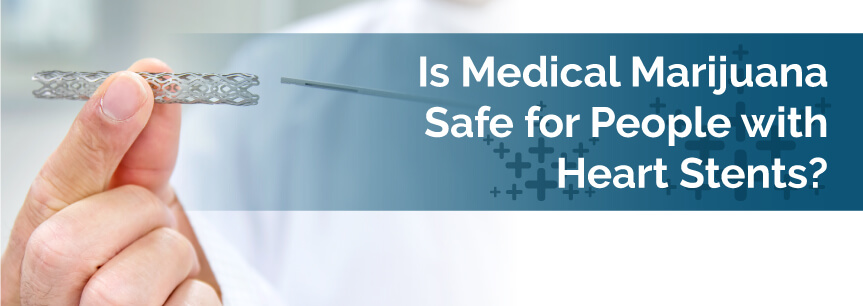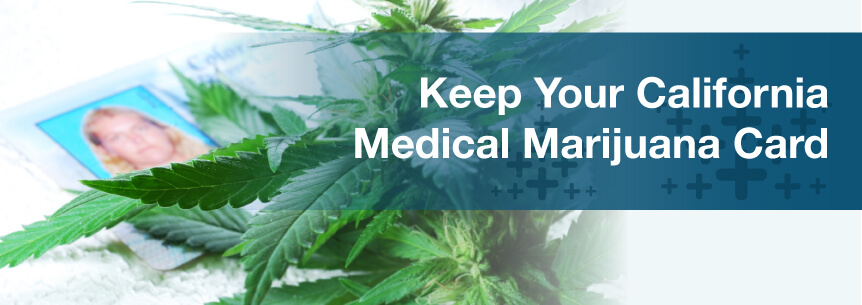Medical marijuana has gained popularity for its potential to treat various health conditions, but for people with heart stents or cardiovascular disease, understanding the effects of cannabis on heart health is essential. Many wonder— is it safe for people with heart stents to use medical marijuana? While cannabis may provide relief for some symptoms of heart disease, patients must take precautions and seek medical advice to ensure it does not negatively affect their health.
How Does Marijuana Affect the Heart?
Marijuana can have mixed effects on the heart, depending on the cannabinoids (such as THC and CBD) and the method of consumption. For heart patients, smoking marijuana is generally not recommended, as it introduces harmful toxins to the lungs and heart. Studies suggest that THC may increase heart rate and blood pressure, which could pose risks for individuals with cardiovascular conditions.
However, CBD has been researched for its potential heart health benefits. CBD may regulate heart rate, reduce inflammation, and even lower blood pressure in some cases. These effects make it a better option for heart patients, especially those with stents, who need to avoid strain on their cardiovascular system.
It’s important to consult with your doctor if you have a heart condition or stent, as they can guide you on safe cannabis consumption methods and dosages.
Heart Disease Symptoms Medical Cannabis can Treat
Medical marijuana can potentially alleviate several symptoms associated with heart disease:
- Chest Pain: Cannabis, particularly CBD, may help relieve pain caused by restricted blood flow or inflammation in the heart.
- Fatigue: Some strains of Sativa may boost energy levels, helping patients maintain an active lifestyle, which is crucial for heart health.
- Swelling and Inflammation: Cannabis’s anti-inflammatory properties can reduce swelling in extremities or around the heart, helping improve blood flow.
- Irregular Heartbeat: Certain strains may help calm the nervous system and reduce instances of arrhythmia (irregular heartbeats).
It’s crucial to choose the right strain and consumption method, as using the wrong product can potentially exacerbate some heart-related symptoms.
What should you avoid with a heart stent?
If you’ve had a heart stent placed due to cardiovascular issues, managing your lifestyle carefully is critical to avoiding further complications. While medical marijuana can offer relief for symptoms such as pain, inflammation, and anxiety, it’s essential to be aware of certain factors that could negatively impact your health. People with heart stents must be cautious when using marijuana, particularly regarding the type of strain, method of consumption, and other lifestyle choices. Here’s a detailed look at what to avoid:
Avoid High THC Strains (THC-Dominant Strains)
High-THC strains of marijuana can significantly affect the cardiovascular system. THC, or tetrahydrocannabinol, is the psychoactive compound in marijuana that creates the “high” sensation, but it also has physiological effects that can strain the heart. Some of the key reasons heart patients, particularly those with stents, should avoid THC-dominant strains include:
- Increased Heart Rate: THC is known to cause a temporary increase in heart rate, which can be dangerous for individuals with cardiovascular issues. Studies have shown that shortly after consuming THC, heart rate can increase by 20-50 beats per minute, which puts unnecessary stress on a compromised heart.
- Higher Blood Pressure: THC can cause a temporary spike in blood pressure, especially in the first few hours after consumption. Elevated blood pressure can increase the risk of adverse events, such as heart attacks or strokes, particularly in those with a history of heart disease.
- Risk of Arrhythmias: THC has been linked to the onset of cardiac arrhythmias or irregular heartbeats, which can be dangerous for individuals with existing heart conditions. Arrhythmias can lead to serious complications, especially if you have a stent, as they may affect the stability of your heart rhythm and overall heart function.
Recommendation: Instead of THC-dominant strains, consider strains with higher CBD (cannabidiol) content. CBD is a non-psychoactive compound that has shown promise in reducing heart-related risks. It does not increase heart rate or blood pressure, making it a safer alternative for heart patients. Always consult your healthcare provider before choosing a strain, as they can help tailor recommendations based on your specific heart condition.
Avoid Smoking
Smoking marijuana is generally the most harmful method of consumption for heart patients, particularly those with a stent. Whether it’s marijuana or tobacco, inhaling combusted substances introduces a variety of harmful toxins into the body, which can directly harm the cardiovascular and respiratory systems. Here’s why smoking is especially risky for individuals with heart stents:
- Toxins in Smoke: When marijuana is smoked, it releases harmful chemicals and carcinogens similar to those found in tobacco smoke. These toxins can inflame the lungs, strain the heart, and increase the likelihood of plaque buildup in the arteries—a serious concern for patients with stents.
- Impact on Blood Oxygen Levels: Smoking can reduce the amount of oxygen that reaches the heart and blood, putting added strain on a compromised cardiovascular system. For individuals with a heart stent, low oxygen levels could lead to further artery blockages or stent-related complications.
- Increased Risk of Blood Clots: Smoking can irritate the blood vessels, potentially leading to clot formation. This is particularly concerning for individuals with heart stents, as blood clots in or around the stent can lead to serious health issues, including heart attacks.
Recommendation: For heart patients, particularly those with a stent, it’s best to avoid smoking altogether. Instead, choose non-smoking methods of cannabis consumption such as edibles, tinctures, oils, or vaporization (without combustion). These methods reduce the risks associated with inhaling harmful substances and allow you to experience the therapeutic benefits of cannabis without endangering your heart.
Avoid Edibles with High Sugar Content
Edibles are often recommended as a safer alternative to smoking for individuals with heart conditions. However, not all edibles are created equal—many commercially available edibles are packed with high amounts of sugar, artificial additives, and other unhealthy ingredients. This can pose additional risks for heart patients, especially those with a stent. Here’s why you should avoid edibles high in sugar:
- Increased Risk of Diabetes and Obesity: High-sugar edibles can contribute to the development or worsening of diabetes and obesity, both of which are significant risk factors for heart disease. Maintaining a healthy weight and blood sugar level for patients with a heart stent is crucial to reducing further cardiovascular complications.
- Impact on Cholesterol Levels: Foods high in sugar and unhealthy fats can lead to elevated cholesterol levels, increasing the risk of plaque buildup in the arteries. This is especially dangerous for individuals with a heart stent, as excessive plaque can lead to further blockages or even stent failure.
- Inflammation and Heart Health: High sugar intake is linked to increased inflammation in the body. Chronic inflammation can worsen heart disease and increase the likelihood of complications in individuals with stents. Opting for low-sugar or sugar-free edibles can help reduce inflammation and promote overall heart health.
Recommendation: When choosing edibles, look for those made with low-sugar or natural sweeteners. You can also explore cannabis-infused products like tinctures or capsules, which don’t contain sugar and offer a more controlled and safe way to manage your condition. Homemade edibles using healthier ingredients are also an option, allowing you to customize the dosage and avoid unhealthy additives.
In Summary
For individuals with heart stents, taking extra precautions with marijuana use is crucial to avoid complications. Opt for high-CBD strains, avoid smoking, and be mindful of the type of edibles you consume. Always consult your healthcare provider to ensure you’re making safe choices that align with your heart health needs. If you’re considering medical marijuana as part of your wellness journey, Marijuana Doctors can help you get connected with a licensed doctor to discuss your options and guide you through the process of obtaining a medical marijuana card, ensuring that you have the resources and support needed to make informed decisions.
Frequently Asked Questions
Can you use marijuana with a heart condition?
Yes, but it’s important to consult a healthcare provider first. CBD may be a better option for heart patients due to its calming effects and potential cardiovascular benefits. Avoid high-THC strains, which can increase heart rate and blood pressure.
Is CBD safe for heart patients?
CBD is generally considered safe for heart patients. Studies suggest it may help regulate heart rate, reduce blood pressure, and lower inflammation. However, always consult with your doctor before starting CBD, especially if you have a stent or other heart-related conditions.
What should you avoid with a heart stent?
Avoid smoking marijuana, as it introduces harmful toxins to the heart. High-THC strains should also be avoided, as they can increase heart rate and blood pressure. Stick to CBD-rich strains and consider non-smoking methods like edibles or tinctures.
Are edibles safe for heart patients?
Edibles are a safer alternative to smoking, but it’s essential to choose options with low sugar content and avoid high-THC products. Stick to CBD or balanced strains, and consult with your healthcare provider to ensure they align with your treatment plan.
Is marijuana linked to cardiovascular risks?
Research on the link between marijuana and cardiovascular risks is still developing. While some studies suggest that high-THC marijuana can increase heart rate and blood pressure, CBD has shown promise for heart health benefits. Patients with heart conditions should always consult a doctor before using marijuana.






